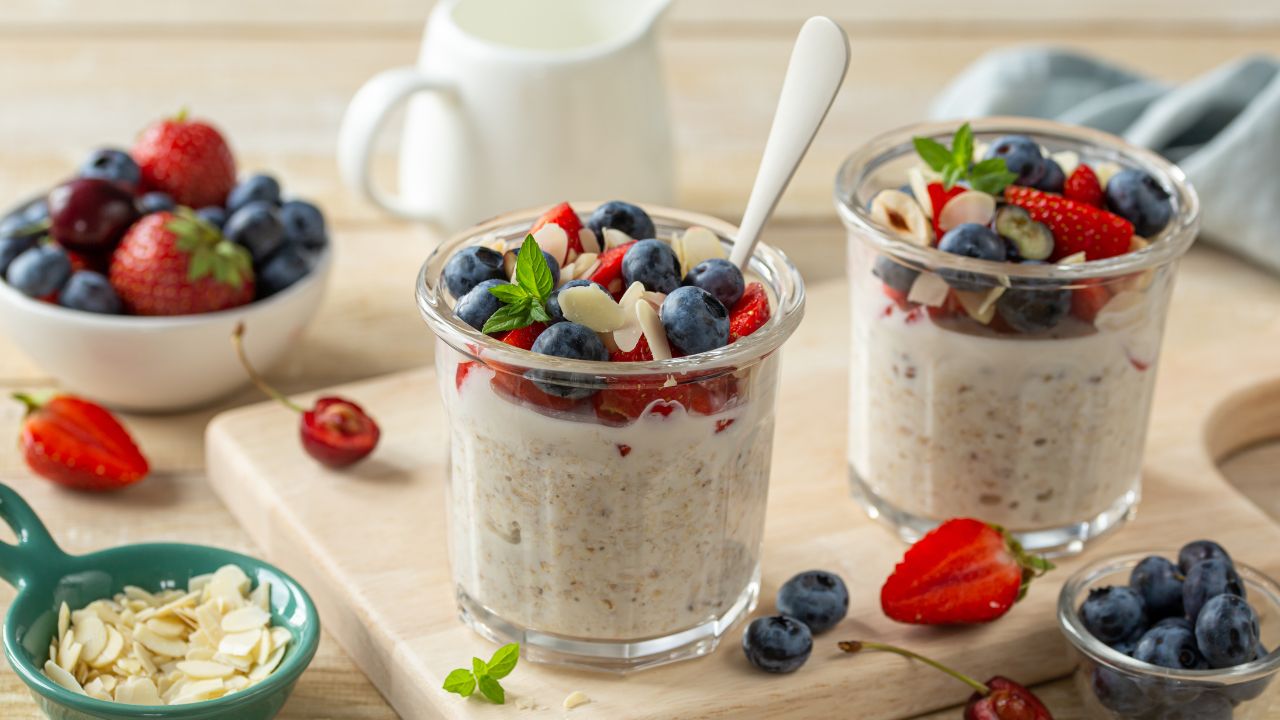
Carbohydrates setup for sedentary people it's the same for any other including active people. Does not means same quantities, means same principles. Carbohydrates must be given based on 2 principles. Insulin spikes and how much movement. The less you move, there fewer the carbs. Those carbs will aslo be, low glycemic ones, which means, low insulin spikes that other ones. Bare in mind, medically advised 130g carbs per day.
This article is specifically for sedentary people. Those who generally give up on trying or those who lives carbs free, struggling to stay on route, most likely overconsuming proteins. I spent 17 years working between sedentary people, extremely active people and top world athletes. Taking studies and direct experience on field, seeing what works and what doesn't. Most of all why, so you'll be able to try, understand and evaluate yourself. I care for solutions more than thesis.
Breakfast sets the tone of the day. Many of you knows fasting. Fasting is based on lowering glucose in blood stream.
However fasting is an extreme solution. You can achieve the same benefit, by being smarter on what you eat.
REAL LIFE EXAMPLE. Fasting without fast
If you have dinner at 8pm, consuming no carbs or low quantiles of low glycemic carbs you will have none to minimal insulin spike in your blood. Than going to bed at 10 and waking up at 6 for example. Having breakfast at 6.30/7. If you do not introduce carbohydrates for breakfast, and have carbohydrates for lunch at 1PM. It would make your fast between glucose around 15 hours considering 10PM to 1AM. Time with no insulin spikes, same advantage or fasting while actually eating.
EATING WHAT
You can understand that if your dinner is whatever food and your lunch is whatever food it's not the same. Therefore having the macronutrients and micronutrients necessary, for low glucose regime, will directly influence the outcome. Never confuse caloreis with macronutrients. Calories will not account for health, organs efficiency, glucose levels or body composition.
Therefore for Breakfast for sedentary people:
I suggest NO CARBS IF you are trying to reduce body fat and or/do not exercise or move daily
This will allow your body to stay in a glucose depletion, allowing fat loss (if your nutrition is set for it) and increase insulin sensitivity for your lunch.
I suggest LOW GLYCEMIC INDEX CARBS if you are exercising during the day or good shape and want to maintain it.
This will prevent energy drops, while not triggering major insulins spikes and reduce cravings. Best way as it will reduce later quantities of carbs per meal. Making it easier to absorb and utilise glucose efficiently.

The most common mistakes lead to unlikable side effects. Those that created the bad aura about carbs as well.
Luckily, all are extremely easy to resolve.
Most common mistakes
Excess protein making carbohydrates being a bad addition
As everyone talks calories, I will explain it as such. Adding some advance details. Carbohydrates and proteins are equally providing 4 calories per each gram consumed.
Based on it, 80g of carbs and 20g of protein is equal to 20g of carbs and 80g of protein.
80g carbs and 20g of proteins = to 100g (3.5oz) uncooked rice and 80g (2.8oz) uncooked chicken.
20g of carbs and 80g of protein = 25g (0.9oz) uncooked rice and 320g(11.3oz) of uncooked chicken
Now while both providing 400 calories, which one do you think will be more digestible?
Proteins are the most advance macronutrients to breakdown. Therefore the second meal, which has sky-high protein, exaggerated on purpose for you to understand. While providing same calories will be malevolent for your liver, kidneys and digestion. Creating bloating and lethargy, while depriving of glucose, making later craving for sugar necessary.
Having the right amount of everything, is more important than overall quantity of anything.
Wrong carbohydrates
The most common is misunderstanding carbohydrates differences and functions. Once understood how to set carbohydrates based on requirements (I'll provide guidance at the end of this article), understanding which one makes the whole difference.
Did you know that top athletes, consume glucose supplements comparable to pure sugar? to keep up with extreme perfomace and as well as maintain their muscle masses?
So how is it possible that people are suggested to avoid carbs? Cause it's mistake. As I previously said, it's medically advised 130g of carbs a day only for neurological functions. What is important is to understand which carbs and when.
Far from physical activates
Low glycemic carbs
As for example for NFL players o NBA, high levels of sugar are necessary near or during high perfomance. To provide precious glucose quickly available for their requirement. For sedentary people, far from demanding physical actives, it's exact the opposite.
Slow digesting carbs which mildly raise insulin levels. Such as:
• Sweet potatoes
• Brown rice
• Brown pasta
• Whole grain noodles
• Wholegrain bread
• Oats
Low carb - Sugar cravings
To understand the correct lesson, leading to a negative outcome we need to analyse 3 worlds, part of the same universe but with 3 different ways to see and perceive. Medicine, Sports nutrition and General Nutrition.
• Medicine (functional in particular)
Analyses the body as a whole and suggests implementation guidance based on a 360 degrees approach.
Suggests 130g of carbohydrates a day minimal requirement for optimal neurological function.
Recognise glucose as main energy source for humans.
• Sports Nutrition
As the name says, focusing on sport and performance, applying nutritional knowledge to maintain and improve performance.
Uses carbohydrates as most important nutrient, emphasising hormonal benefits, sleep, wellbeing and nutritional balance.
• General Nutrition
Recognise carbohydrates as main energy source for humans. From a need of standardisation, based from weight loss, suggests to reduce or cut carbohydrates, over consuming protein for longer satiety feeling.
This protein over consuming, as I explained in example before, does not leave any caloric window for carbs.
But as all of 3 worlds agrees, carbohydrate being the number 1 source of energy, will create a craving.
Ever met someone or have a friend doing extremely low carb, looking to dessert and carb meals, craving it. Most likely having in private times far from eyes?! this is not weakness. It's human nature, and this is how it is explained. Solutions is a caloric reset with different macros and seeing these craves disappearing.
These are the most common but there are many more.
In case just search for LOW GI carbs or Low glycemic index carbohydrates sources.

This is the most strategic meal of the day. Nailing this meal will be literally winning the lottery. Improved body composition, stabilised energy levels, no evening cravings and metabolic optimisation.
This is the most carbohydrates loaded meal of the day.
Consequently, perhaps lower fats and proteins with it, which will be added later on at dinner.
Which one is explained in the previous chapter, how many, will be at the end
As a sedentary day, I recommend to keep it near or lower than 40% of the daily intake. This meal will be the one leading to bed and there is no need to load it. Carbohydrates before bed aid sleep as they improve serotonin release making you sleepy.
This is the most important part of the whole article. How much. Well I have a direct approach.
By school they teach us to set a number to be add to body weight. From as low as 2g up to 15g per kilo.
I like to use a smarter method which I know will always be right.
Starting from your current calories, no matter if you are losing weight, maintaining or gaining, I will do an arithmetical work.
CALOREIS = Carbohydrates + Protein + Fats
Carbohydrates = CALORIES - Protein + Fats
The secret it's by adjusting to real protein intake. As I explained in a previous article
VERY COMMON REAL LIFE EXAMPLE
1400 calories = 200g protein + 50g fats + 37.5g carbs
1400 caloreis = 800cal + 450cal + 150cal
1400 = 57% + 32% + 10% - Very common nutritional example picked from starting clients.
Judge the balance among macronutrient percentage
Reset protein to requirement, I maintain calories
1400 calories =120g protein + 50g fats + 117.5g carbs =
1400 calories = 480cal + 450cal + 470cal
1400 calories = 34% + 32% + 33% Our work methodology based molecular biology work and direct application
Judge the balance among macronutrient percentage
Carbohydrates = 117,5g
Now how is it possible to change anything. If it was weight loss, weight gain or maintaining weight.
We did not change overall calories. We just made digestive truck and gut health more efficient.
This will translate into:
• A balanced diet
• Improved body compositio
• No craving ( if the calories are correct )
• Improved hormonal profile
• Improved sleep
• Improved neurological activity.


